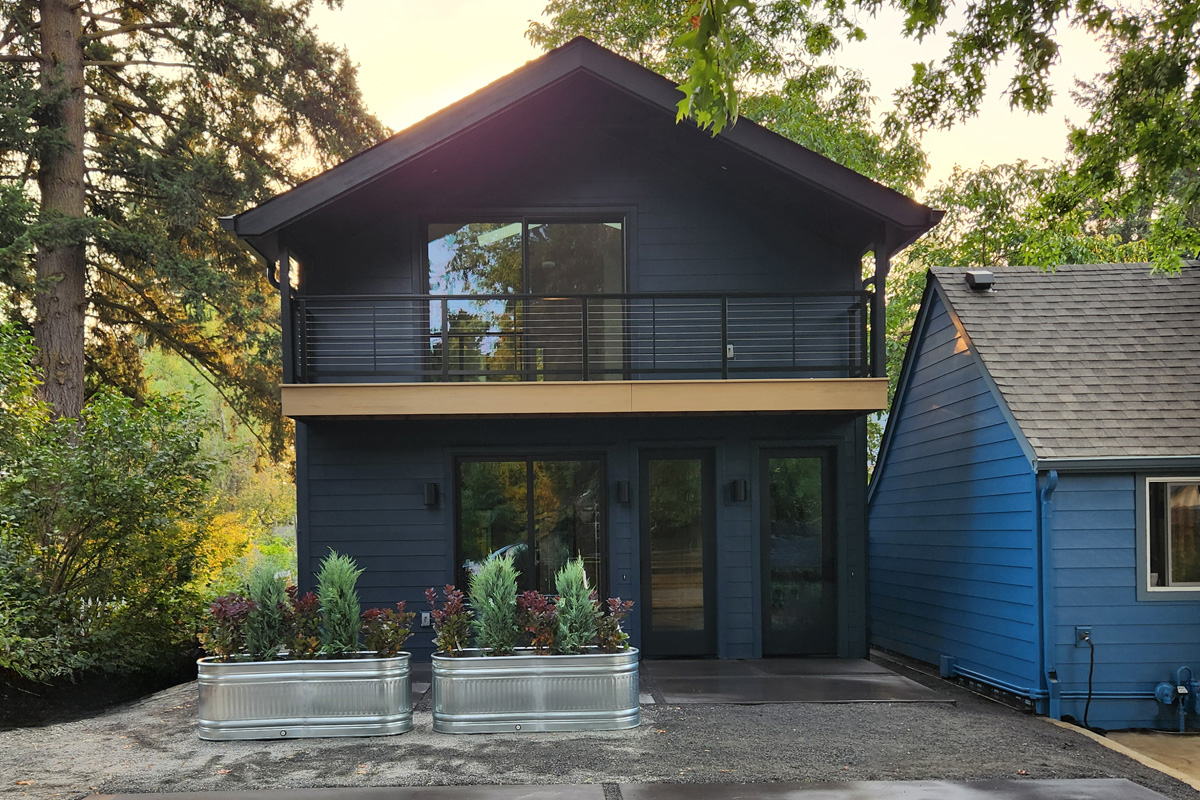As the Portland Metro area becomes more densely populated and housing prices continue to rise, homeowners are looking for innovative ways to maximize their property’s value and functionality. One option that has gained significant traction in recent years is the construction of an accessory dwelling unit (ADU). These small, secondary residences can be attached to the main house, detached in the backyard, or even converted from existing spaces like garages or basements. But why are so many homeowners choosing to build ADUs? Here are the top reasons driving this trend:
1. Increased Property Value
One of the primary reasons homeowners choose to build an ADU is the potential for increased property value. By adding an additional living space, you’re not only enhancing the usability of your property but also creating a long-term investment. In Portland, an ADU can significantly boost the resale value of a home. Buyers see the potential for rental income, extra space for family, or flexible living arrangements, making properties with ADUs highly desirable.
2. Rental Income
Building an ADU offers homeowners the opportunity to generate passive income by renting out the space. With the rise of platforms like Airbnb and an increasing demand for long-term rentals in urban areas, ADUs present a lucrative way to offset mortgage payments or simply generate additional cash flow. Whether it’s short-term vacation rentals or long-term tenants, the ability to rent out a secondary unit appeals to many property owners seeking financial flexibility.
3. Multi-Generational Living
With the rising cost of assisted living and the desire to keep family close, many homeowners are opting to build ADUs as a way to accommodate aging parents or adult children. These units offer a level of independence for family members while still keeping them nearby for support. As multi-generational living becomes more common, ADUs provide the perfect solution by offering privacy while fostering close-knit family connections.
4. Flexible Work-from-Home Solutions
The pandemic accelerated the shift to remote work, and many people have adopted long-term work-from-home arrangements. An ADU can serve as the ideal home office or creative studio, providing a quiet, separate space away from the distractions of the main household. Homeowners have recognized that adding an ADU allows for the flexibility of transforming it into a productive workspace while also retaining its potential for future uses, like a guest house or rental unit.
5. Guest Accommodations
Having a dedicated space for guests can enhance your hosting experience. Rather than setting up air mattresses or squeezing visitors into spare rooms, an ADU offers a private retreat for guests. Whether it’s friends visiting for the weekend or family members staying for extended periods, ADUs allow you to offer hospitality without sacrificing your privacy. It’s also a practical option for hosting family during the holidays or for visiting college kids during school breaks.
6. Downsizing Without Selling
For empty nesters or retirees looking to downsize but not ready to sell their family home, an ADU can be a perfect compromise. Homeowners can downsize into the smaller ADU, which is often more energy-efficient and cost-effective to maintain, while renting out the main house to generate income. This strategy allows them to stay in a familiar neighborhood and keep their primary residence, all while adapting to their new lifestyle needs.
Portland’s ADU Design-Build Specialists
Whether to generate rental income, provide family accommodations, or for personal lifestyle improvements, the reasons for building an ADU are varied and compelling. As housing needs evolve, ADUs offer a smart, flexible solution for maximizing property value and creating functional spaces that can adapt over time. Thinking about an ADU for your property? Contact the Evergreen team for a free design consultation / feasibility study today!




